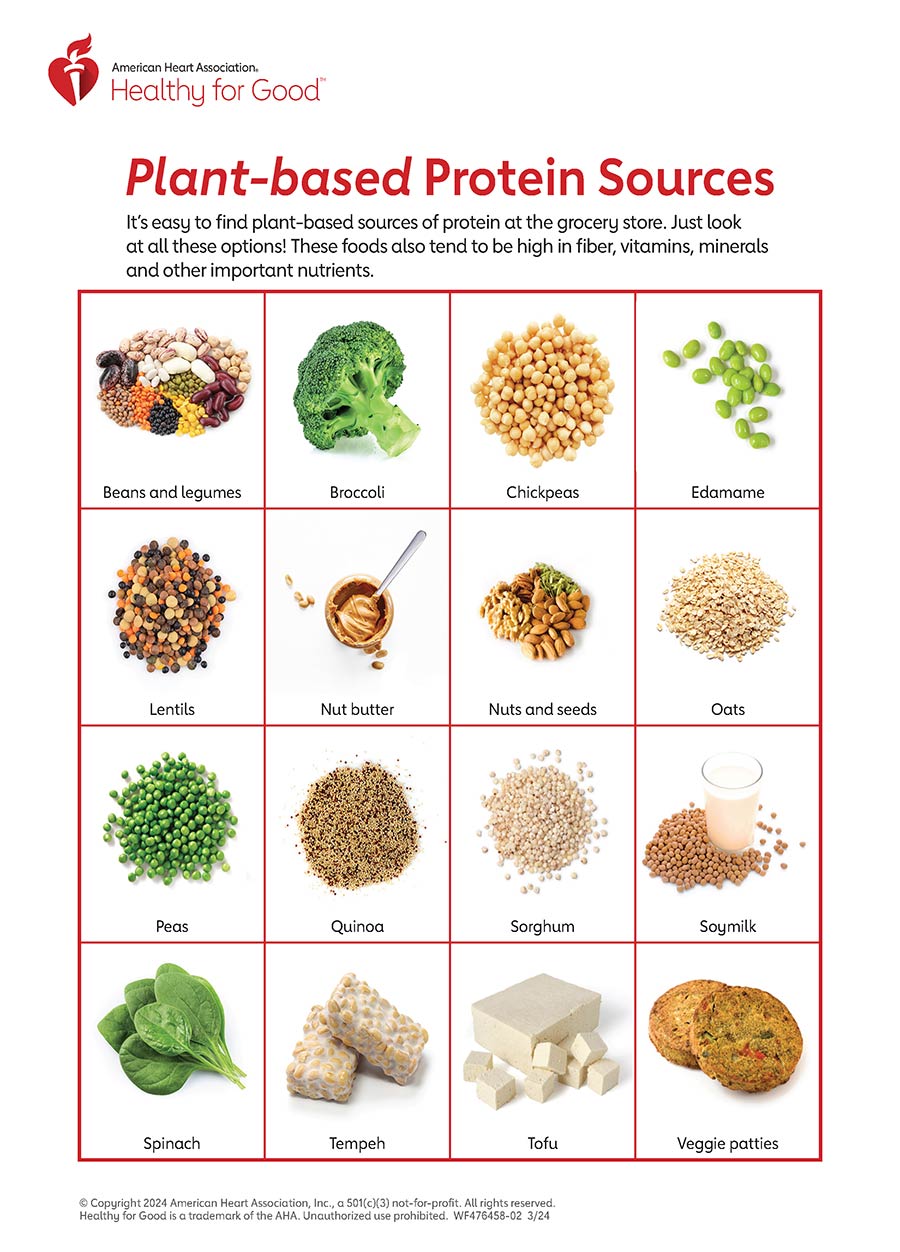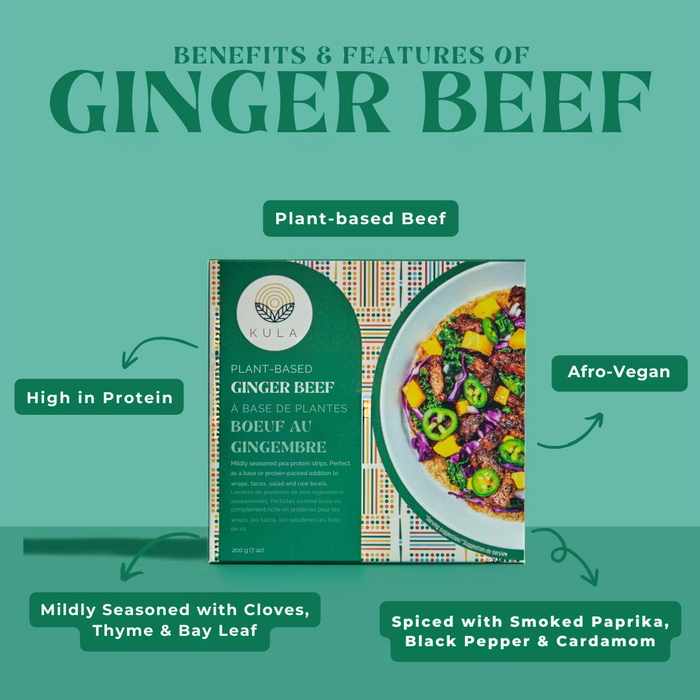How Gluten Free BBQ Sauce Elevates Your Vegan Grilling Game
How Gluten Free BBQ Sauce Elevates Your Vegan Grilling Game
Blog Article
All Concerning Healthy Food: Advantages of Enjoying Plant Based Alternatives
The discussion bordering plant-based diet regimens has actually acquired substantial attention over the last few years. Many individuals are exploring the prospective health and wellness advantages, dietary benefits, and ecological influences connected with these dietary options. As people end up being extra familiar with their food's impact on health and sustainability, concerns occur concerning the practicalities of taking on such a way of life. What particular modifications can one anticipate, and just how might these selections reshape not only individual health and wellness however also the earth's future?
Recognizing Plant-Based Diet Plans
Although lots of people connect plant-based diet plans generally with vegetarianism or veganism, these diets can include a wide variety of eating patterns that prioritize whole, minimally processed plant foods. Such diets often include fruits, vegetables, entire grains, seeds, nuts, and vegetables, while removing or restricting pet items. This versatility enables individuals to tailor their nutritional selections according to dietary requirements and personal choices. Some may take on a primarily plant-based diet regimen while still occasionally consuming meat or dairy, frequently referred to as a flexitarian approach. The focus continues to be on incorporating more plant foods, which can bring about a diverse array of dishes and flavors. Understanding these different analyses of plant-based consuming is essential for appreciating its ease of access and allure in contemporary food culture.
Health And Wellness Advantages of Plant-Based Foods
The health benefits of plant-based foods are significant, using a nutrient density advantage that supports total wellness. Study shows that these foods can enhance heart health and play an essential duty in efficient weight administration. By integrating much more plant-based choices, individuals might improve their dietary options and advertise long-term health and wellness.
Nutrient Thickness Benefit
Nutrient density plays a crucial role in the wellness benefits of plant-based foods, making them an engaging choice for those seeking a balanced diet plan. Plant-based foods, such as fruits, vegetables, beans, nuts, and whole grains, are often abundant in essential vitamins, minerals, and antioxidants while being lower in calories. This high nutrient thickness permits individuals to consume less calories while still satisfying their dietary needs. In addition, these foods are packed with nutritional fiber, advertising gastrointestinal health and wellness and aiding in weight management. By incorporating nutrient-dense plant-based options, consumers can enhance their total wellness, support their body immune systems, and reduce the danger of chronic conditions. Eventually, the nutrient density of plant-based foods highlights their value in a health-conscious way of life.
Heart Wellness Improvement

Weight Monitoring Support
In addition to advertising heart wellness, a plant-based diet regimen can significantly help in weight administration. This dietary approach stresses whole foods such as fruits, vegetables, beans, nuts, and whole grains, which are usually reduced in calories and higher in fiber contrasted to animal-based items. The high fiber content assists boost satiation, minimizing overall calorie intake. In addition, plant-based diet regimens are often abundant in crucial nutrients while low in unhealthy fats, making it easier to preserve a healthy and balanced weight. Gluten Free BBQ Sauce. Research suggests that individuals who embrace a plant-based way of life often tend to have reduced body mass indexes (BMIs) and experience even more effective weight-loss compared to those that eat meat-heavy diets. Accepting plant-based options is a calculated choice for effective weight management.
Nutritional Value of Plant-Based Ingredients
Plant-based components are abundant in necessary nutrients, providing a varied range of vitamins, minerals, and anti-oxidants that contribute to general health and wellness. A comparison of healthy protein sources exposes that while animal items are frequently considered as superior, several plant-based options offer appropriate healthy protein and various other advantageous compounds. Understanding the nutritional value of these active ingredients can aid people make informed dietary choices.
Vital Nutrients in Plants
Nutrient-rich active ingredients found in plants offer a diverse selection of important minerals and vitamins that contribute considerably to overall health and wellness. These ingredients are abundant in vitamins A, C, and K, which sustain immune feature, vision, and blood clotting, respectively. Furthermore, plants supply crucial minerals such as potassium, magnesium, and calcium, crucial for heart wellness, muscle function, and bone strength. The presence of fiber in plant-based foods help food digestion and advertises a healthy and balanced gut microbiome. Antioxidants, discovered generously in vegetables and fruits, aid fight oxidative anxiety and minimize inflammation. Lots of plant foods are reduced in calories yet high in nutrients, making them an exceptional choice for those looking for to keep a healthy and balanced weight while ensuring excellent nutrient intake.

Comparing Protein Resources
Healthy protein resources differ significantly in their dietary profiles, with plant-based active ingredients using special benefits. Unlike animal healthy proteins, which usually have hydrogenated fats and cholesterol, plant proteins have a tendency to be lower in these undesirable components. Legumes, nuts, seeds, and whole grains are abundant in important amino acids, fiber, vitamins, and minerals. Lentils provide high protein content together with significant iron and folate, while quinoa is a complete protein, using all 9 crucial amino acids. In addition, plant-based proteins are commonly gone along with by anti-oxidants and phytochemicals that sustain overall health. The shift to plant-based protein resources not just improves dietary intake however also straightens with sustainable nutritional methods, decreasing ecological effect and promoting long-lasting health advantages.
Ecological Impact of Plant-Based Consuming
As understanding of environment modification grows, numerous individuals are exploring lasting nutritional selections that can significantly decrease their environmental impact. Plant-based consuming has become a considerable factor to reducing greenhouse gas exhausts, which are largely connected with livestock production. The growing of fruits, beans, vegetables, and grains usually needs fewer sources, such as water and land, compared to pet farming. In addition, plant-based diet regimens can result in reduced deforestation, as much less land is needed for grazing animals or expanding pet feed. By moving in the direction of plant-based alternatives, customers can sustain biodiversity and promote healthier ecological communities. On the whole, welcoming plant-based eating not only advantages individual health yet also represents an important step toward environmental sustainability and conservation efforts.
Overcoming Common Misconceptions
While numerous individuals acknowledge the benefits of a plant-based diet, several mistaken beliefs usually hinder them from totally welcoming this way of living. An usual idea is that plant-based diet regimens do not have adequate protein; however, numerous plant sources, such as beans, nuts, and tofu, give enough healthy protein. Furthermore, some presume that this diet is expensive, when as a matter of fact, staples like beans, rice, and seasonal veggies can be rather budget friendly. An additional false impression is that plant-based consuming Visit This Link is excessively restrictive, whereas it in fact uses a diverse array of foods and flavors. Lastly, numerous stress that a plant-based diet regimen may cause shortages, yet with appropriate planning, people can acquire all required nutrients, consisting of nutrients, while taking pleasure in a wide array of scrumptious meals.
Tips for Transitioning to a Plant-Based Way of living
Making the shift to a plant-based way of living can be an enriching experience, though it usually needs some advice to navigate the first changes. Individuals are motivated to begin gradually, integrating even more fruits, vegetables, beans, and whole grains into their dishes while lowering meat and dairy usage. Dish preparation is vital; preparing an once a week menu can help alleviate the adjustment and prevent last-minute undesirable selections. Discovering new recipes and cooking techniques can also preserve and improve the experience excitement regarding plant-based consuming. Furthermore, joining support system or communities can provide inspiration and share beneficial tips. Staying informed about nutrition warranties well balanced dishes, preventing shortages while cultivating a healthy and balanced, enjoyable plant-based way of life.

Delicious Plant-Based Meal Concepts
Checking out scrumptious plant-based meal concepts can motivate individuals to accept an extra healthy diet regimen. One popular choice is a passionate quinoa salad, featuring cherry tomatoes, cucumber, and a spicy lemon-tahini clothing. Another favorite is a full-flavored lentil stew, packed with carrots, celery, and aromatic natural herbs, perfect for a reassuring supper. For morning meal, overnight oats made with almond milk, chia seeds, and topped with fresh berries supply a nutritious begin to the day. In addition, a vibrant vegetable stir-fry with tofu and a range of vivid veggies can be a fast yet satisfying meal. Velvety avocado salute on whole-grain bread, sprayed with spices and seeds, offers an easy yet delicious treat. These dishes display the selection and splendor of plant-based consuming.

Frequently Asked Inquiries
Can a Plant-Based Diet Plan Offer Enough Healthy Protein?
The concern of whether a plant-based diet can pop over to this web-site give adequate protein prevails. Many sources, consisting of vegetables, nuts, seeds, and whole grains, can fulfill protein requires successfully, supporting a nutritious and well balanced diet for people.
Are Plant-Based Diet Plans Ideal for Children?
The viability of plant-based diet plans for children depends upon careful planning. Adequate nutrients should be ensured, including proteins, vitamins, and minerals. With correct advice, such diets can support healthy growth and advancement in kids.
Exactly how Do I Eat in restaurants on a Plant-Based Diet regimen?
Eating in restaurants on a plant-based diet plan involves looking for restaurants with diverse menus, asking for adjustments, and exploring vegan-friendly choices. Planning ahead and interacting dietary choices can enhance the eating experience while preserving nutritional selections.
What Are Typical Irritants in Plant-Based Foods?
Usual irritants in view it plant-based foods include soy, gluten, nuts, and seeds - BBQ Sauces. Individuals complying with a plant-based diet regimen should know these allergens and check out tags meticulously to avoid unfavorable responses and guarantee safe usage
Can Plant-Based Diets Aid With Weight-loss?
Study indicates that adopting a plant-based diet plan may assist in fat burning due to its normally reduced calorie thickness and greater fiber web content. This mix can boost satiety, helping individuals manage their caloric consumption efficiently. Numerous people associate plant-based diets primarily with vegetarianism or veganism, these diet plans can include a large variety of eating patterns that prioritize whole, minimally processed plant foods. Nutrient density plays an important role in the health benefits of plant-based foods, making them a compelling choice for those looking for a well balanced diet plan. Plant-based diet plans have been shown to substantially boost heart wellness, as they commonly consist of aspects that support cardio feature. In addition to advertising heart health, a plant-based diet regimen can substantially help in weight management. A common idea is that plant-based diet plans lack enough protein; however, countless plant resources, such as legumes, nuts, and tofu, give adequate protein.
Report this page